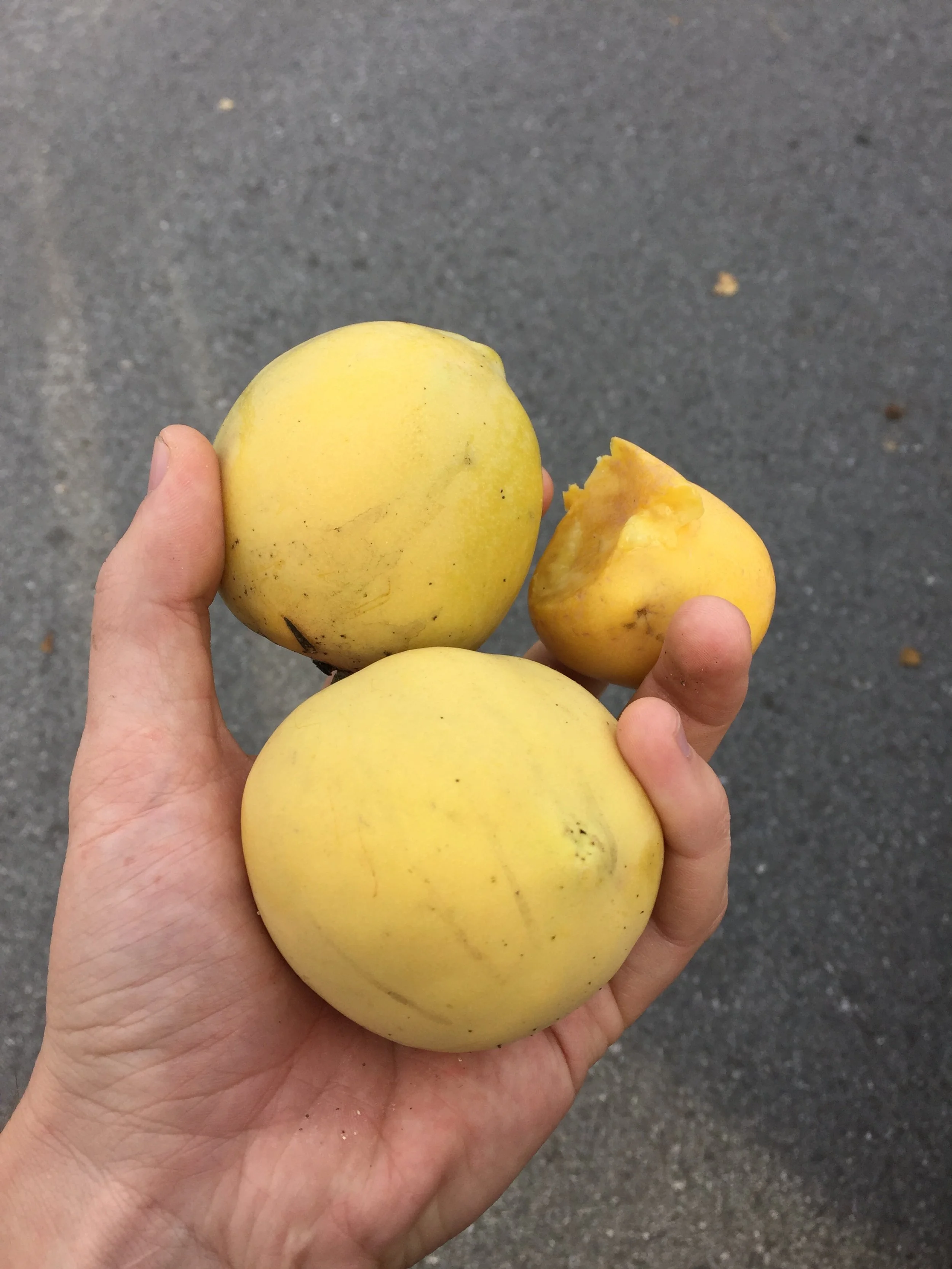Casimiroa edulis
White Sapote
Name of Grower:
Nate Blackmore
Zone/Climate/Location:
9b, Coastal Influence Mediterranean Climate, Santa Cruz, California
Genus:
Casimiroa
species:
edulis
Common Name:
White Sapote
Variety or Seedling Provenance:
Grafted cv. ‘Menlo Park’, ‘CASFS’, Old Orchard in SC County
Cold Hardiness & Winter Damage:
Very cold hardy plant, Can be grown most anywhere citrus is grown. Very little winter cold damage but defoliates if exposed to heavy winter winds. Makes it into the 30’s no problem.
Sun Exposure:
Full Sun
Growth Rate:
Moderate growth rate, fast when established
Size of Plant:
‘Menlo Park’~7 feet, ‘CASFS’~30-40 feet
Time to Maturity (Time to Flowering and Fruiting):
~4 years
Size at Maturity:
Around 4 or so feet
Fruit Size:
‘Menlo Park’-Large fruits the size of a baseball
'CASFS’-Can reach baseball size
Fruit Production (Quality, Quantity, etc.):
Fruit is great. Fruit can range from having slightly bitter skin to unnoticeable skin. Flesh is high quality and incredibly sweet. Produces abundant amounts of fruit.
Notes on Fruit Harvest, Handling, Storage, Market Potential:
Fruits can be consumed immediately or be kept for a couple of days depending on stage of ripeness it was picked at. Fruits can be easily bruised in the harvesting process unless picked under ripe. Ripe fruits are very soft and susceptible to damage. Can be kept for roughly a week if picked unripe. Can be kept on a counter or in a fridge for a couple days if picked very ripe. High market potential for fresh selling of fruits as well as use in value added products. The pulp seems like it has potential as a custard or maybe even to be used as a dried sugar alternative.
Flowering/Fruiting Period (List specific months if possible):
Harvesting fruit in Oct-Nov, unsure on flower-fruit timeline
Cultural Practice:
In the Ground
Notes:
A really exceptional fruit that has won a place in my heart as being on of the most delicious and easy to grow in my area. The parent tree is in zone 9b lowlands and it is thriving in my Santa Cruz Banana Belt(ish) property as well as at my farm on slope in soils that are seasonally inundated with high moisture levels. Really a vigorous and beautiful plant that should be included in the landscape. The tree has been grown in the area for I would guess close to 50 years or more. Definitely does really well and old specimens take practically no damage.


